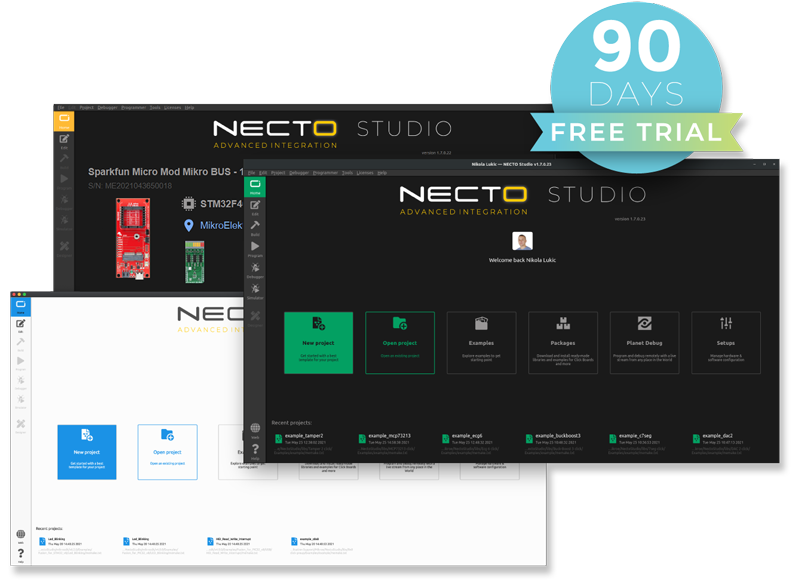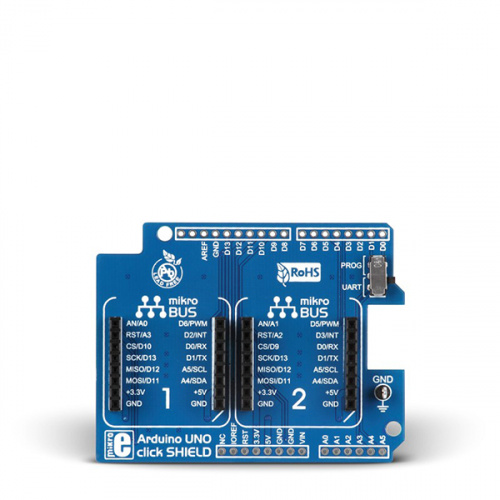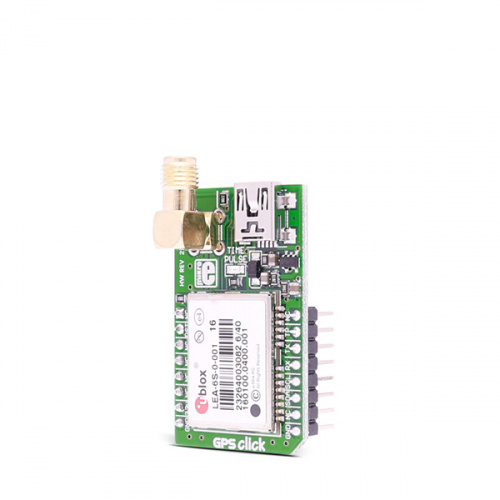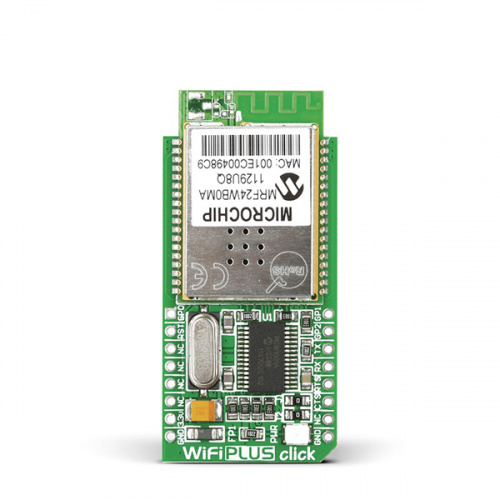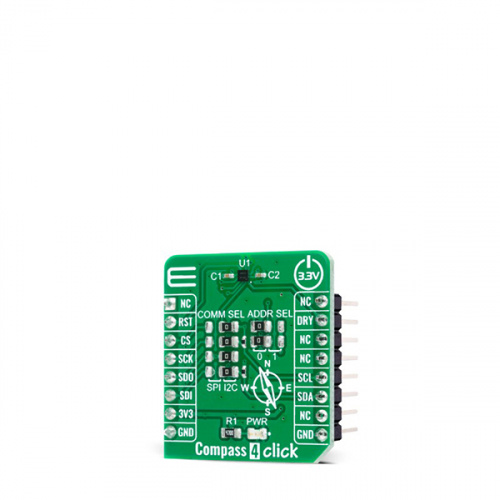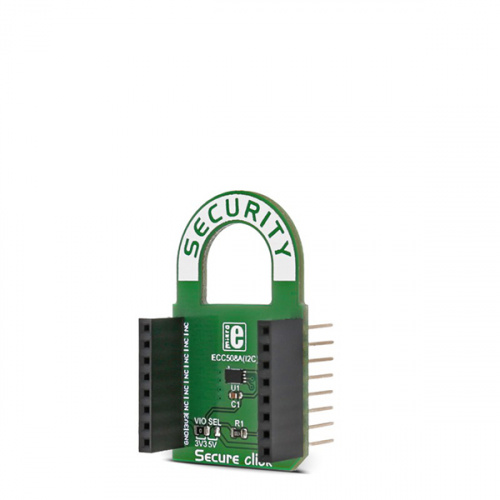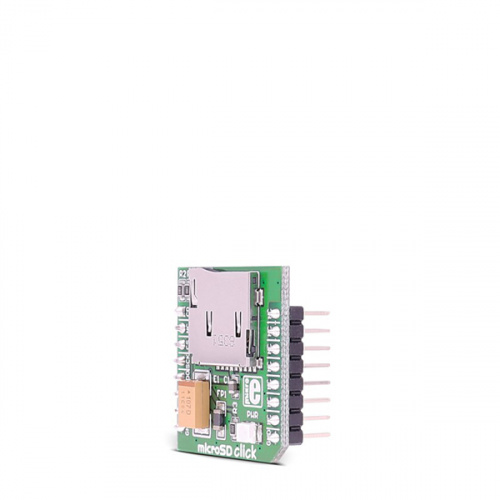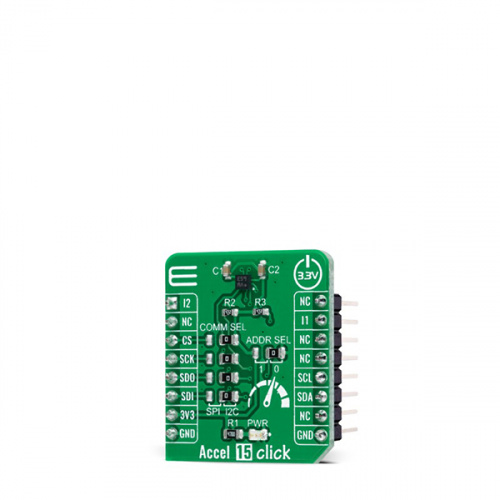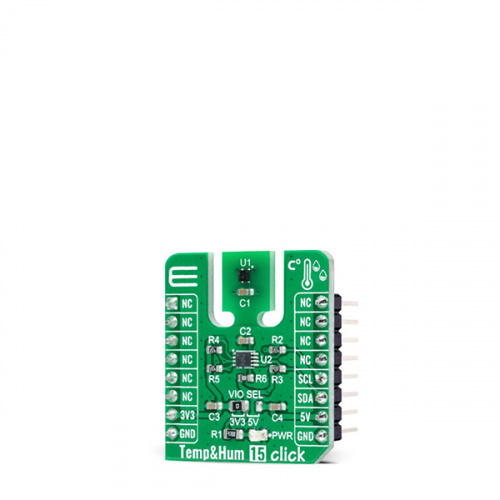

Tap into modular expansion your way with MIKROE & SparkFun
Add the world's largest add-on board collection alongside Qwiic and MicroMod with SparkFun mikroBUS boards.
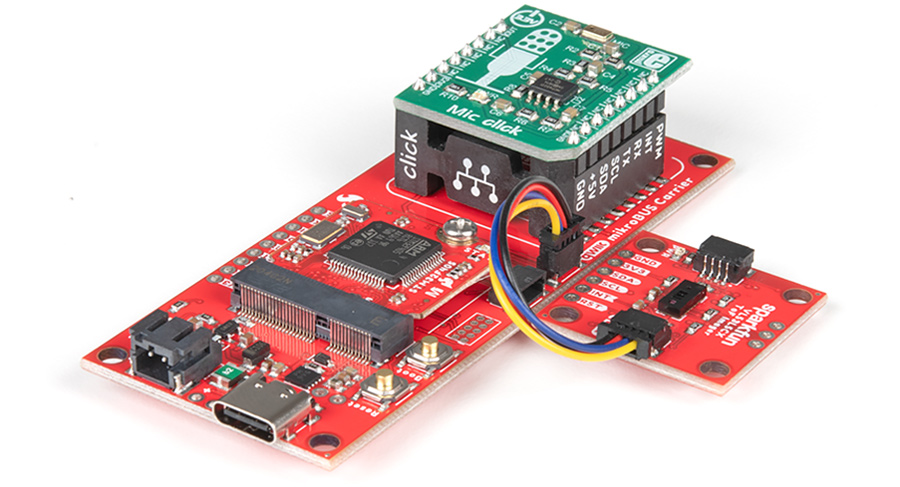
Combining Modular Ecosystems for Rapid Prototyping
Simplify and speed up the development process.
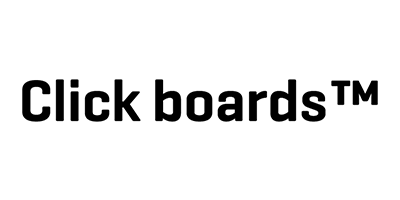
Consistent mikroBUS™ socket
By plugging into a mikroBUS socket, Click boards allow you to not have to worry about designing a new board just to test some idea or concept. Simply plug your desired Click board into a mikroBUS socket to start developing.
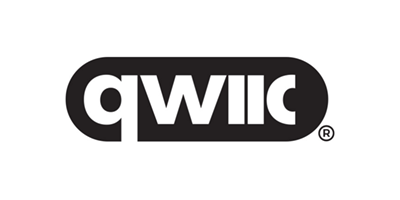
Qwiic compatible
SparkFun's Qwiic Connect System uses 4-pin JST connectors to quickly interface via I2C with development boards with sensors, LCDs, relays and more. By combining the prototyping capabilities of Qwiic and mikroBUS, users can mix and match most any design or project desired.
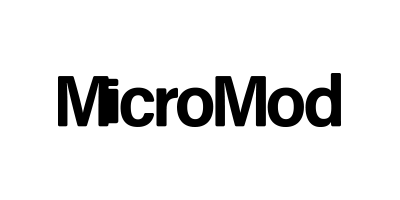
MicroMod expansion
MicroMod is a solderless, modular interface ecosystem that uses the M.2 standard to mix and match your choice of processor with specific Function Boards or stand-alone CarrierBoards.
Note: At this time only the STM32 Processor Board is fully compatible with mikroBUS Carrier board.SparkFun mikroBUS Boards
Our mikroBUS boards open up a world of possibilites by including
the mikroBUS 8-pin header that connects to any Click board.
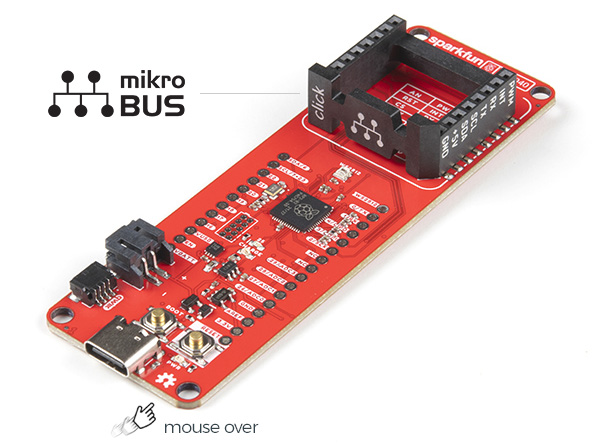
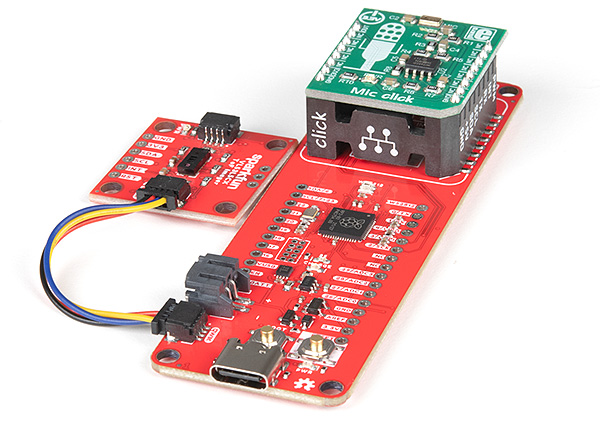
RP2040 mikroBUS Development Board
The SparkFun RP2040 mikroBUS Development Board is a low-cost, high performance platform with flexible digital interfaces featuring the Raspberry Pi RP2040.
- Raspberry Pi Foundation's RP2040 Microcontroller
- mikroBUS Socket
- 16MB QSPI Flash Memory
- Feather Pin-Out
- Qwiic Connector & microSD Socket
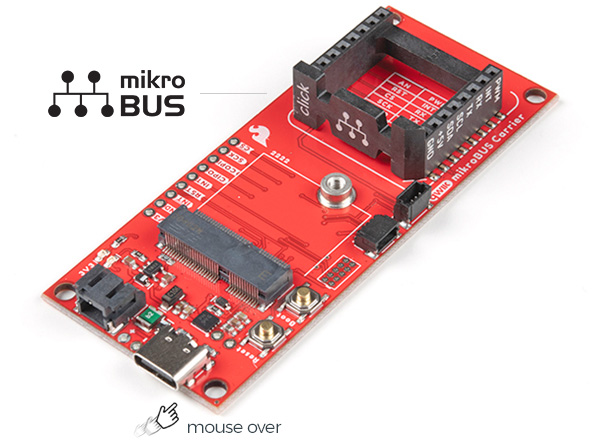
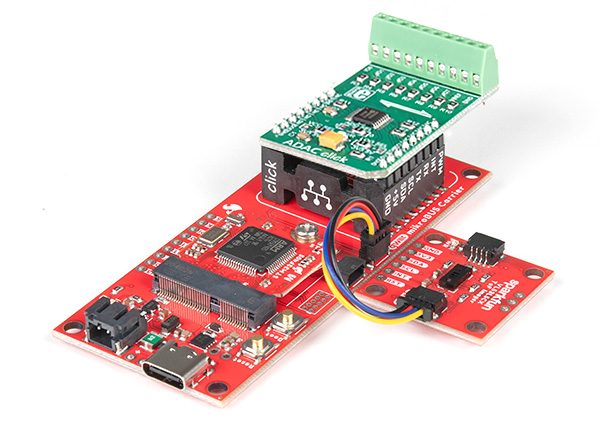
MicroMod mikroBUS Carrier Board
The MicroMod mikroBUS Carrier Board takes advantage of the MicroMod, Qwiic, and mikroBUS ecosystems making it easy to rapidly prototype with each of them.
- M.2 MicroMod (Processor Board) Connector
- mikroBUS Socket
- Qwiic Connectors (x2)
- USB-C Connector
- LiPo Charging Circuit

mikroBUS Boards are compatible with Necto Studio
Necto Studio is a productive cross-platform integrated developing environment provided by MikroElektronika and is available on Windows, Linux, and macOS. It includes C compilers, mikroSDK 2.0, package manager, and USB or WiFi Debugger capabilities with flexible licensing options. The development environment features intelligent code completion, auto-close brackets, and drag and drop visual elements.
Click boards™
We carry 200 different Click Boards to match the functionality your project needs.
Featured Click boards™
Click board™ categories
Additional Resources
MicroMod mikroBUS™ Carrier Board Hookup Guide
March 4, 2022
This carrier board takes advantage of the MicroMod, Qwiic, and the mikroBUS™ ecosystems and allows users to take advantage of the growing number of 7 MicroMod processor boards, 83 Qwiic (add-on) boards, and +1100 drop-in Click boards™, which equates to +51M different board combinations. Click to learn more.
RP2040 mikroBUS™ Development Board Hookup Guide
March 4, 2022
The RP2040 is the first microcontroller from the Raspberry Pi Foundation. Updated with the new mikroBUS™ socket, the RP2040 development board expands its horizons with a growing ecosystem of +1100 drop-in Click boards™. Click to learn more.
Getting Started with Necto Studio
March 4, 2022
Necto Studio is a user friendly development environment for users looking to get started with MikroElektronika's MIKROE products.
